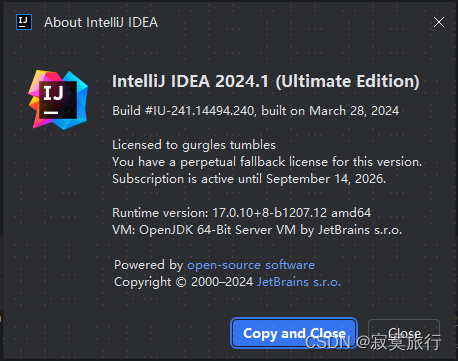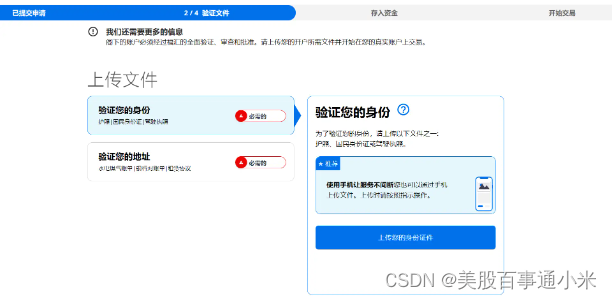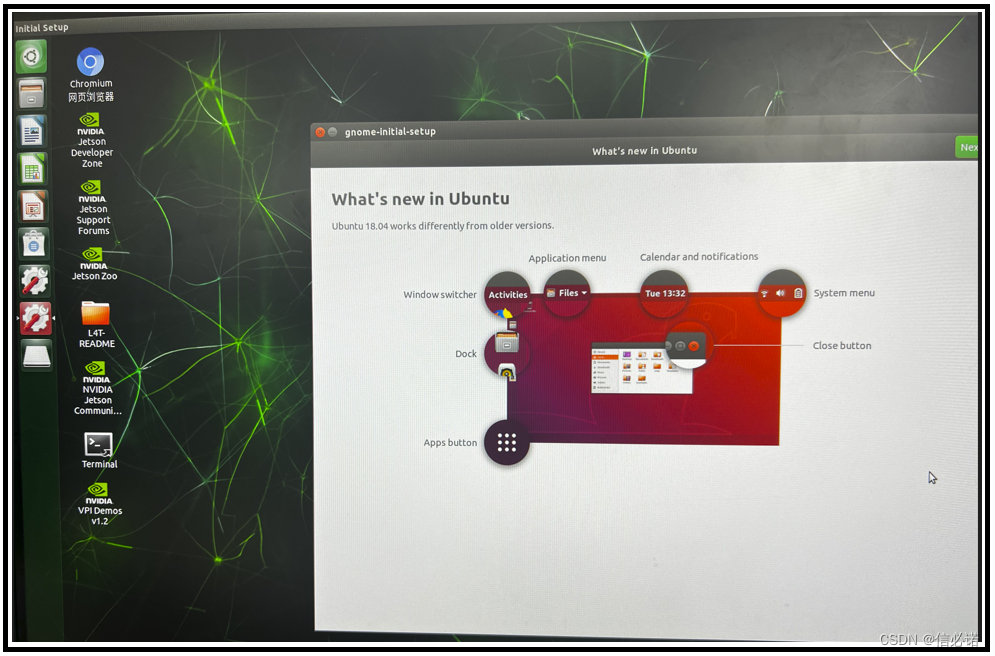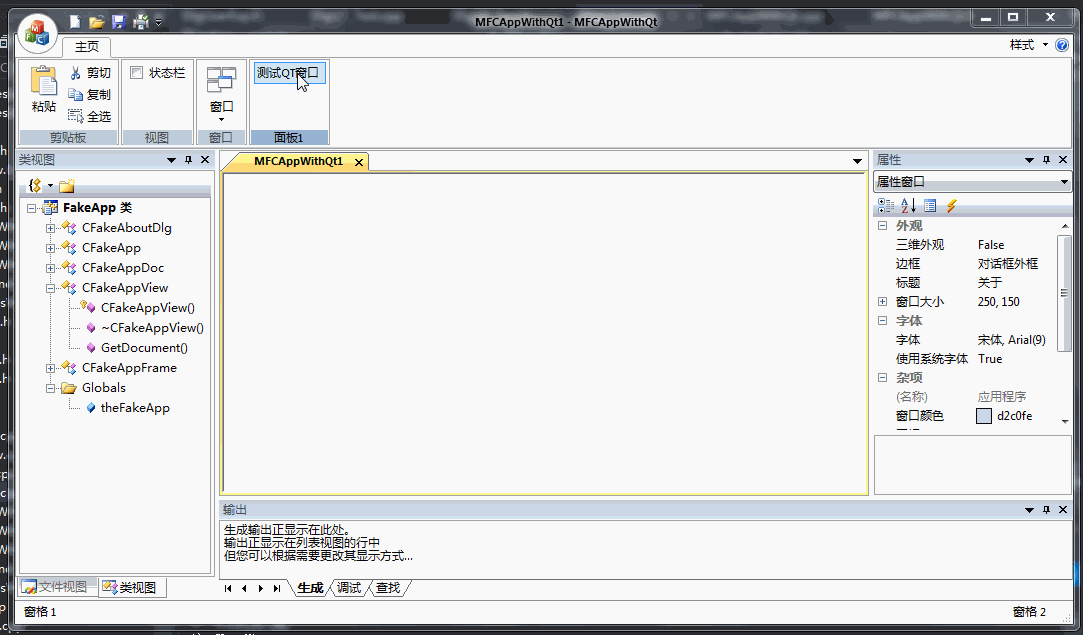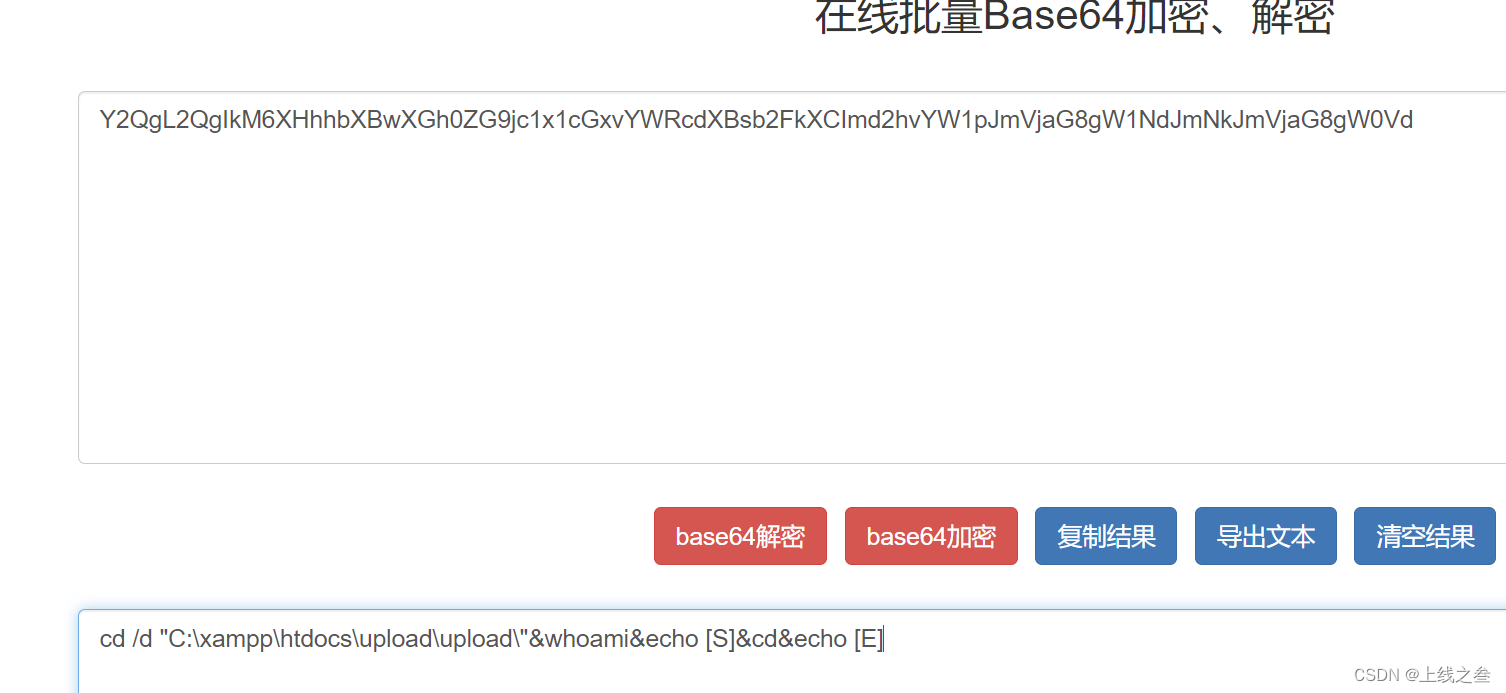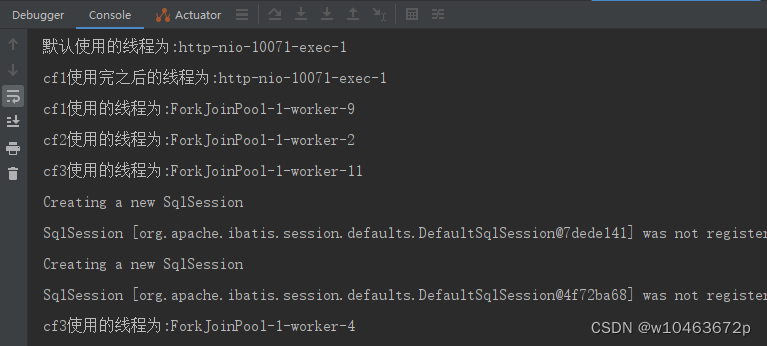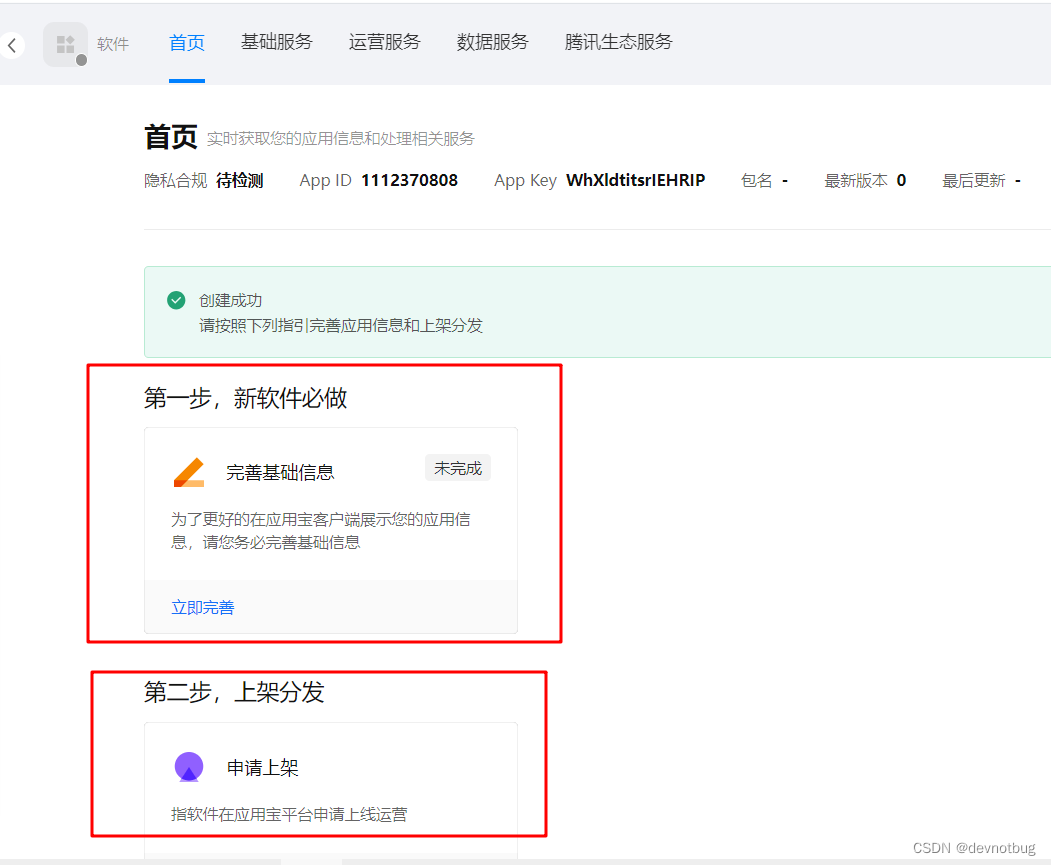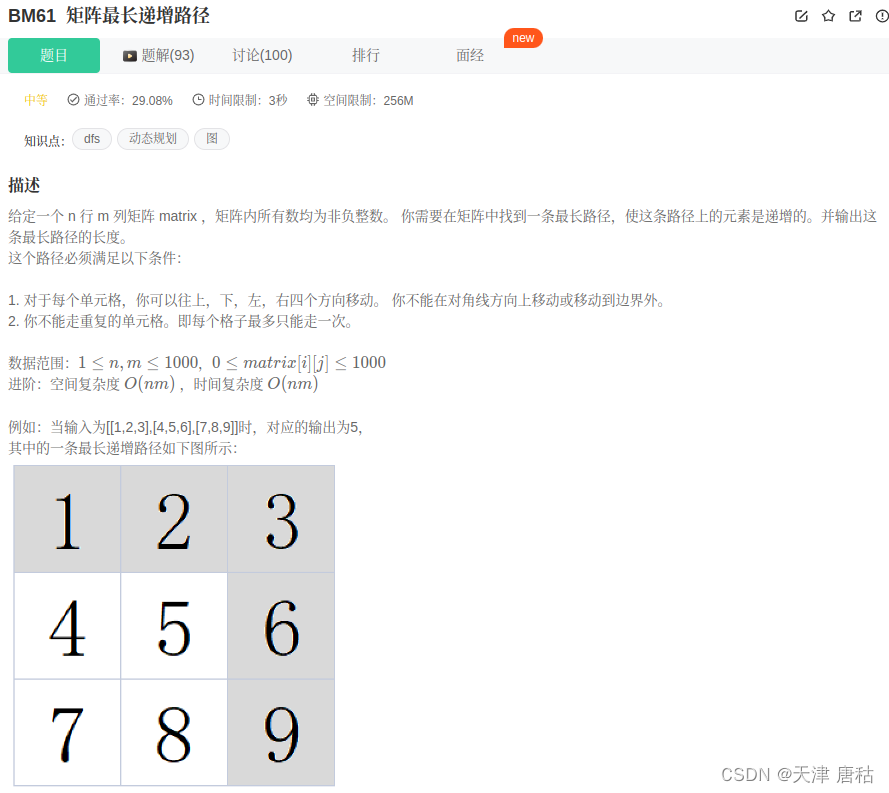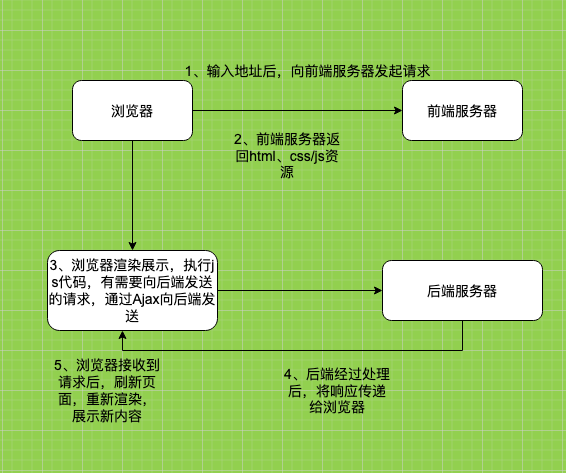- 通过adb修改
adb root
adb shell setenforce 0 // 开SELinux,设置成模式permissive
adb shell setenforce 1 // 关SELinux,设置成模式enforce
adb shell getenforce // 获取当前SELinux状态
- 源码修改
Android_source/system/core/init/selinux.cpp
将IsEnforcing()方法中默认返回值修改为false即默认关闭SELinux
bool IsEnforcing() {
return false;
// if (ALLOW_PERMISSIVE_SELINUX) {
// return StatusFromProperty() == SELINUX_ENFORCING;
// }
// return true;
}
make update-api
make -j24
编译报错

unused fun,注释掉(测试仅限于ud版本)
// EnforcingStatus StatusFromProperty() {
// EnforcingStatus status = SELINUX_ENFORCING;
// ImportKernelCmdline([&](const std::string& key, const std::string& value) {
// if (key == "androidboot.selinux" && value == "permissive") {
// status = SELINUX_PERMISSIVE;
// }
// });
// if (status == SELINUX_ENFORCING) {
// ImportBootconfig([&](const std::string& key, const std::string& value) {
// if (key == "androidboot.selinux" && value == "permissive") {
// status = SELINUX_PERMISSIVE;
// }
// });
// }
// return status;
// }
完整版代码如下
/*
* Copyright (C) 2017 The Android Open Source Project
*
* Licensed under the Apache License, Version 2.0 (the "License");
* you may not use this file except in compliance with the License.
* You may obtain a copy of the License at
*
* http://www.apache.org/licenses/LICENSE-2.0
*
* Unless required by applicable law or agreed to in writing, software
* distributed under the License is distributed on an "AS IS" BASIS,
* WITHOUT WARRANTIES OR CONDITIONS OF ANY KIND, either express or implied.
* See the License for the specific language governing permissions and
* limitations under the License.
*/
// This file contains the functions that initialize SELinux during boot as well as helper functions
// for SELinux operation for init.
// When the system boots, there is no SEPolicy present and init is running in the kernel domain.
// Init loads the SEPolicy from the file system, restores the context of /system/bin/init based on
// this SEPolicy, and finally exec()'s itself to run in the proper domain.
// The SEPolicy on Android comes in two variants: monolithic and split.
// The monolithic policy variant is for legacy non-treble devices that contain a single SEPolicy
// file located at /sepolicy and is directly loaded into the kernel SELinux subsystem.
// The split policy is for supporting treble devices and updateable apexes. It splits the SEPolicy
// across files on /system/etc/selinux (the 'plat' portion of the policy), /vendor/etc/selinux
// (the 'vendor' portion of the policy), /system_ext/etc/selinux, /product/etc/selinux,
// /odm/etc/selinux, and /dev/selinux (the apex portion of policy). This is necessary to allow
// images to be updated independently of the vendor image, while maintaining contributions from
// multiple partitions in the SEPolicy. This is especially important for VTS testing, where the
// SEPolicy on the Google System Image may not be identical to the system image shipped on a
// vendor's device.
// The split SEPolicy is loaded as described below:
// 1) There is a precompiled SEPolicy located at either /vendor/etc/selinux/precompiled_sepolicy or
// /odm/etc/selinux/precompiled_sepolicy if odm parition is present. Stored along with this file
// are the sha256 hashes of the parts of the SEPolicy on /system, /system_ext, /product, and apex
// that were used to compile this precompiled policy. The system partition contains a similar
// sha256 of the parts of the SEPolicy that it currently contains. Symmetrically, system_ext,
// product, and apex contain sha256 hashes of their SEPolicy. Init loads this
// precompiled_sepolicy directly if and only if the hashes along with the precompiled SEPolicy on
// /vendor or /odm match the hashes for system, system_ext, product, and apex SEPolicy,
// respectively.
// 2) If these hashes do not match, then either /system or /system_ext /product, or apex (or some of
// them) have been updated out of sync with /vendor (or /odm if it is present) and the init needs
// to compile the SEPolicy. /system contains the SEPolicy compiler, secilc, and it is used by
// the OpenSplitPolicy() function below to compile the SEPolicy to a temp directory and load it.
// That function contains even more documentation with the specific implementation details of how
// the SEPolicy is compiled if needed.
#include "selinux.h"
#include <android/api-level.h>
#include <fcntl.h>
#include <linux/audit.h>
#include <linux/netlink.h>
#include <stdlib.h>
#include <sys/wait.h>
#include <unistd.h>
#include <fstream>
#include <CertUtils.h>
#include <android-base/chrono_utils.h>
#include <android-base/file.h>
#include <android-base/logging.h>
#include <android-base/parseint.h>
#include <android-base/result.h>
#include <android-base/scopeguard.h>
#include <android-base/strings.h>
#include <android-base/unique_fd.h>
#include <fs_avb/fs_avb.h>
#include <fs_mgr.h>
#include <fsverity_init.h>
#include <libgsi/libgsi.h>
#include <libsnapshot/snapshot.h>
#include <mini_keyctl_utils.h>
#include <selinux/android.h>
#include <ziparchive/zip_archive.h>
#include "block_dev_initializer.h"
#include "debug_ramdisk.h"
#include "reboot_utils.h"
#include "snapuserd_transition.h"
#include "util.h"
using namespace std::string_literals;
using android::base::ParseInt;
using android::base::Timer;
using android::base::unique_fd;
using android::fs_mgr::AvbHandle;
using android::snapshot::SnapshotManager;
namespace android {
namespace init {
namespace {
enum EnforcingStatus { SELINUX_PERMISSIVE, SELINUX_ENFORCING };
// EnforcingStatus StatusFromProperty() {
// EnforcingStatus status = SELINUX_ENFORCING;
// ImportKernelCmdline([&](const std::string& key, const std::string& value) {
// if (key == "androidboot.selinux" && value == "permissive") {
// status = SELINUX_PERMISSIVE;
// }
// });
// if (status == SELINUX_ENFORCING) {
// ImportBootconfig([&](const std::string& key, const std::string& value) {
// if (key == "androidboot.selinux" && value == "permissive") {
// status = SELINUX_PERMISSIVE;
// }
// });
// }
// return status;
// }
bool IsEnforcing() {
return false;
// if (ALLOW_PERMISSIVE_SELINUX) {
// return StatusFromProperty() == SELINUX_ENFORCING;
// }
// return true;
}
// Forks, executes the provided program in the child, and waits for the completion in the parent.
// Child's stderr is captured and logged using LOG(ERROR).
bool ForkExecveAndWaitForCompletion(const char* filename, char* const argv[]) {
// Create a pipe used for redirecting child process's output.
// * pipe_fds[0] is the FD the parent will use for reading.
// * pipe_fds[1] is the FD the child will use for writing.
int pipe_fds[2];
if (pipe(pipe_fds) == -1) {
PLOG(ERROR) << "Failed to create pipe";
return false;
}
pid_t child_pid = fork();
if (child_pid == -1) {
PLOG(ERROR) << "Failed to fork for " << filename;
return false;
}
if (child_pid == 0) {
// fork succeeded -- this is executing in the child process
// Close the pipe FD not used by this process
close(pipe_fds[0]);
// Redirect stderr to the pipe FD provided by the parent
if (TEMP_FAILURE_RETRY(dup2(pipe_fds[1], STDERR_FILENO)) == -1) {
PLOG(ERROR) << "Failed to redirect stderr of " << filename;
_exit(127);
return false;
}
close(pipe_fds[1]);
if (execv(filename, argv) == -1) {
PLOG(ERROR) << "Failed to execve " << filename;
return false;
}
// Unreachable because execve will have succeeded and replaced this code
// with child process's code.
_exit(127);
return false;
} else {
// fork succeeded -- this is executing in the original/parent process
// Close the pipe FD not used by this process
close(pipe_fds[1]);
// Log the redirected output of the child process.
// It's unfortunate that there's no standard way to obtain an istream for a file descriptor.
// As a result, we're buffering all output and logging it in one go at the end of the
// invocation, instead of logging it as it comes in.
const int child_out_fd = pipe_fds[0];
std::string child_output;
if (!android::base::ReadFdToString(child_out_fd, &child_output)) {
PLOG(ERROR) << "Failed to capture full output of " << filename;
}
close(child_out_fd);
if (!child_output.empty()) {
// Log captured output, line by line, because LOG expects to be invoked for each line
std::istringstream in(child_output);
std::string line;
while (std::getline(in, line)) {
LOG(ERROR) << filename << ": " << line;
}
}
// Wait for child to terminate
int status;
if (TEMP_FAILURE_RETRY(waitpid(child_pid, &status, 0)) != child_pid) {
PLOG(ERROR) << "Failed to wait for " << filename;
return false;
}
if (WIFEXITED(status)) {
int status_code = WEXITSTATUS(status);
if (status_code == 0) {
return true;
} else {
LOG(ERROR) << filename << " exited with status " << status_code;
}
} else if (WIFSIGNALED(status)) {
LOG(ERROR) << filename << " killed by signal " << WTERMSIG(status);
} else if (WIFSTOPPED(status)) {
LOG(ERROR) << filename << " stopped by signal " << WSTOPSIG(status);
} else {
LOG(ERROR) << "waitpid for " << filename << " returned unexpected status: " << status;
}
return false;
}
}
bool ReadFirstLine(const char* file, std::string* line) {
line->clear();
std::string contents;
if (!android::base::ReadFileToString(file, &contents, true /* follow symlinks */)) {
return false;
}
std::istringstream in(contents);
std::getline(in, *line);
return true;
}
Result<std::string> FindPrecompiledSplitPolicy() {
std::string precompiled_sepolicy;
// If there is an odm partition, precompiled_sepolicy will be in
// odm/etc/selinux. Otherwise it will be in vendor/etc/selinux.
static constexpr const char vendor_precompiled_sepolicy[] =
"/vendor/etc/selinux/precompiled_sepolicy";
static constexpr const char odm_precompiled_sepolicy[] =
"/odm/etc/selinux/precompiled_sepolicy";
if (access(odm_precompiled_sepolicy, R_OK) == 0) {
precompiled_sepolicy = odm_precompiled_sepolicy;
} else if (access(vendor_precompiled_sepolicy, R_OK) == 0) {
precompiled_sepolicy = vendor_precompiled_sepolicy;
} else {
return ErrnoError() << "No precompiled sepolicy at " << vendor_precompiled_sepolicy;
}
// Use precompiled sepolicy only when all corresponding hashes are equal.
std::vector<std::pair<std::string, std::string>> sepolicy_hashes{
{"/system/etc/selinux/plat_sepolicy_and_mapping.sha256",
precompiled_sepolicy + ".plat_sepolicy_and_mapping.sha256"},
{"/system_ext/etc/selinux/system_ext_sepolicy_and_mapping.sha256",
precompiled_sepolicy + ".system_ext_sepolicy_and_mapping.sha256"},
{"/product/etc/selinux/product_sepolicy_and_mapping.sha256",
precompiled_sepolicy + ".product_sepolicy_and_mapping.sha256"},
{"/dev/selinux/apex_sepolicy.sha256", precompiled_sepolicy + ".apex_sepolicy.sha256"},
};
for (const auto& [actual_id_path, precompiled_id_path] : sepolicy_hashes) {
// Both of them should exist or both of them shouldn't exist.
if (access(actual_id_path.c_str(), R_OK) != 0) {
if (access(precompiled_id_path.c_str(), R_OK) == 0) {
return Error() << precompiled_id_path << " exists but " << actual_id_path
<< " doesn't";
}
continue;
}
std::string actual_id;
if (!ReadFirstLine(actual_id_path.c_str(), &actual_id)) {
return ErrnoError() << "Failed to read " << actual_id_path;
}
std::string precompiled_id;
if (!ReadFirstLine(precompiled_id_path.c_str(), &precompiled_id)) {
return ErrnoError() << "Failed to read " << precompiled_id_path;
}
if (actual_id.empty() || actual_id != precompiled_id) {
return Error() << actual_id_path << " and " << precompiled_id_path << " differ";
}
}
return precompiled_sepolicy;
}
bool GetVendorMappingVersion(std::string* plat_vers) {
if (!ReadFirstLine("/vendor/etc/selinux/plat_sepolicy_vers.txt", plat_vers)) {
PLOG(ERROR) << "Failed to read /vendor/etc/selinux/plat_sepolicy_vers.txt";
return false;
}
if (plat_vers->empty()) {
LOG(ERROR) << "No version present in plat_sepolicy_vers.txt";
return false;
}
return true;
}
constexpr const char plat_policy_cil_file[] = "/system/etc/selinux/plat_sepolicy.cil";
bool IsSplitPolicyDevice() {
return access(plat_policy_cil_file, R_OK) != -1;
}
std::optional<const char*> GetUserdebugPlatformPolicyFile() {
// See if we need to load userdebug_plat_sepolicy.cil instead of plat_sepolicy.cil.
const char* force_debuggable_env = getenv("INIT_FORCE_DEBUGGABLE");
if (force_debuggable_env && "true"s == force_debuggable_env && AvbHandle::IsDeviceUnlocked()) {
const std::vector<const char*> debug_policy_candidates = {
#if INSTALL_DEBUG_POLICY_TO_SYSTEM_EXT == 1
"/system_ext/etc/selinux/userdebug_plat_sepolicy.cil",
#endif
kDebugRamdiskSEPolicy,
};
for (const char* debug_policy : debug_policy_candidates) {
if (access(debug_policy, F_OK) == 0) {
return debug_policy;
}
}
}
return std::nullopt;
}
struct PolicyFile {
unique_fd fd;
std::string path;
};
bool OpenSplitPolicy(PolicyFile* policy_file) {
// IMPLEMENTATION NOTE: Split policy consists of three or more CIL files:
// * platform -- policy needed due to logic contained in the system image,
// * vendor -- policy needed due to logic contained in the vendor image,
// * mapping -- mapping policy which helps preserve forward-compatibility of non-platform policy
// with newer versions of platform policy.
// * (optional) policy needed due to logic on product, system_ext, odm, or apex.
// secilc is invoked to compile the above three policy files into a single monolithic policy
// file. This file is then loaded into the kernel.
const auto userdebug_plat_sepolicy = GetUserdebugPlatformPolicyFile();
const bool use_userdebug_policy = userdebug_plat_sepolicy.has_value();
if (use_userdebug_policy) {
LOG(INFO) << "Using userdebug system sepolicy " << *userdebug_plat_sepolicy;
}
// Load precompiled policy from vendor image, if a matching policy is found there. The policy
// must match the platform policy on the system image.
// use_userdebug_policy requires compiling sepolicy with userdebug_plat_sepolicy.cil.
// Thus it cannot use the precompiled policy from vendor image.
if (!use_userdebug_policy) {
if (auto res = FindPrecompiledSplitPolicy(); res.ok()) {
unique_fd fd(open(res->c_str(), O_RDONLY | O_CLOEXEC | O_BINARY));
if (fd != -1) {
policy_file->fd = std::move(fd);
policy_file->path = std::move(*res);
return true;
}
} else {
LOG(INFO) << res.error();
}
}
// No suitable precompiled policy could be loaded
LOG(INFO) << "Compiling SELinux policy";
// We store the output of the compilation on /dev because this is the most convenient tmpfs
// storage mount available this early in the boot sequence.
char compiled_sepolicy[] = "/dev/sepolicy.XXXXXX";
unique_fd compiled_sepolicy_fd(mkostemp(compiled_sepolicy, O_CLOEXEC));
if (compiled_sepolicy_fd < 0) {
PLOG(ERROR) << "Failed to create temporary file " << compiled_sepolicy;
return false;
}
// Determine which mapping file to include
std::string vend_plat_vers;
if (!GetVendorMappingVersion(&vend_plat_vers)) {
return false;
}
std::string plat_mapping_file("/system/etc/selinux/mapping/" + vend_plat_vers + ".cil");
std::string plat_compat_cil_file("/system/etc/selinux/mapping/" + vend_plat_vers +
".compat.cil");
if (access(plat_compat_cil_file.c_str(), F_OK) == -1) {
plat_compat_cil_file.clear();
}
std::string system_ext_policy_cil_file("/system_ext/etc/selinux/system_ext_sepolicy.cil");
if (access(system_ext_policy_cil_file.c_str(), F_OK) == -1) {
system_ext_policy_cil_file.clear();
}
std::string system_ext_mapping_file("/system_ext/etc/selinux/mapping/" + vend_plat_vers +
".cil");
if (access(system_ext_mapping_file.c_str(), F_OK) == -1) {
system_ext_mapping_file.clear();
}
std::string system_ext_compat_cil_file("/system_ext/etc/selinux/mapping/" + vend_plat_vers +
".compat.cil");
if (access(system_ext_compat_cil_file.c_str(), F_OK) == -1) {
system_ext_compat_cil_file.clear();
}
std::string product_policy_cil_file("/product/etc/selinux/product_sepolicy.cil");
if (access(product_policy_cil_file.c_str(), F_OK) == -1) {
product_policy_cil_file.clear();
}
std::string product_mapping_file("/product/etc/selinux/mapping/" + vend_plat_vers + ".cil");
if (access(product_mapping_file.c_str(), F_OK) == -1) {
product_mapping_file.clear();
}
std::string vendor_policy_cil_file("/vendor/etc/selinux/vendor_sepolicy.cil");
if (access(vendor_policy_cil_file.c_str(), F_OK) == -1) {
LOG(ERROR) << "Missing " << vendor_policy_cil_file;
return false;
}
std::string plat_pub_versioned_cil_file("/vendor/etc/selinux/plat_pub_versioned.cil");
if (access(plat_pub_versioned_cil_file.c_str(), F_OK) == -1) {
LOG(ERROR) << "Missing " << plat_pub_versioned_cil_file;
return false;
}
// odm_sepolicy.cil is default but optional.
std::string odm_policy_cil_file("/odm/etc/selinux/odm_sepolicy.cil");
if (access(odm_policy_cil_file.c_str(), F_OK) == -1) {
odm_policy_cil_file.clear();
}
// apex_sepolicy.cil is default but optional.
std::string apex_policy_cil_file("/dev/selinux/apex_sepolicy.cil");
if (access(apex_policy_cil_file.c_str(), F_OK) == -1) {
apex_policy_cil_file.clear();
}
const std::string version_as_string = std::to_string(SEPOLICY_VERSION);
// clang-format off
std::vector<const char*> compile_args {
"/system/bin/secilc",
use_userdebug_policy ? *userdebug_plat_sepolicy : plat_policy_cil_file,
"-m", "-M", "true", "-G", "-N",
"-c", version_as_string.c_str(),
plat_mapping_file.c_str(),
"-o", compiled_sepolicy,
// We don't care about file_contexts output by the compiler
"-f", "/sys/fs/selinux/null", // /dev/null is not yet available
};
// clang-format on
if (!plat_compat_cil_file.empty()) {
compile_args.push_back(plat_compat_cil_file.c_str());
}
if (!system_ext_policy_cil_file.empty()) {
compile_args.push_back(system_ext_policy_cil_file.c_str());
}
if (!system_ext_mapping_file.empty()) {
compile_args.push_back(system_ext_mapping_file.c_str());
}
if (!system_ext_compat_cil_file.empty()) {
compile_args.push_back(system_ext_compat_cil_file.c_str());
}
if (!product_policy_cil_file.empty()) {
compile_args.push_back(product_policy_cil_file.c_str());
}
if (!product_mapping_file.empty()) {
compile_args.push_back(product_mapping_file.c_str());
}
if (!plat_pub_versioned_cil_file.empty()) {
compile_args.push_back(plat_pub_versioned_cil_file.c_str());
}
if (!vendor_policy_cil_file.empty()) {
compile_args.push_back(vendor_policy_cil_file.c_str());
}
if (!odm_policy_cil_file.empty()) {
compile_args.push_back(odm_policy_cil_file.c_str());
}
if (!apex_policy_cil_file.empty()) {
compile_args.push_back(apex_policy_cil_file.c_str());
}
compile_args.push_back(nullptr);
if (!ForkExecveAndWaitForCompletion(compile_args[0], (char**)compile_args.data())) {
unlink(compiled_sepolicy);
return false;
}
unlink(compiled_sepolicy);
policy_file->fd = std::move(compiled_sepolicy_fd);
policy_file->path = compiled_sepolicy;
return true;
}
bool OpenMonolithicPolicy(PolicyFile* policy_file) {
static constexpr char kSepolicyFile[] = "/sepolicy";
LOG(VERBOSE) << "Opening SELinux policy from monolithic file";
policy_file->fd.reset(open(kSepolicyFile, O_RDONLY | O_CLOEXEC | O_NOFOLLOW));
if (policy_file->fd < 0) {
PLOG(ERROR) << "Failed to open monolithic SELinux policy";
return false;
}
policy_file->path = kSepolicyFile;
return true;
}
constexpr const char* kSigningCertRelease =
"/system/etc/selinux/com.android.sepolicy.cert-release.der";
constexpr const char* kFsVerityProcPath = "/proc/sys/fs/verity";
const std::string kSepolicyApexMetadataDir = "/metadata/sepolicy/";
const std::string kSepolicyApexSystemDir = "/system/etc/selinux/apex/";
const std::string kSepolicyZip = "SEPolicy.zip";
const std::string kSepolicySignature = "SEPolicy.zip.sig";
const std::string kTmpfsDir = "/dev/selinux/";
// Files that are deleted after policy is compiled/loaded.
const std::vector<std::string> kApexSepolicyTmp{"apex_sepolicy.cil", "apex_sepolicy.sha256"};
// Files that need to persist because they are used by userspace processes.
const std::vector<std::string> kApexSepolicy{"apex_file_contexts", "apex_property_contexts",
"apex_service_contexts", "apex_seapp_contexts",
"apex_test"};
Result<void> PutFileInTmpfs(ZipArchiveHandle archive, const std::string& fileName) {
ZipEntry entry;
std::string dstPath = kTmpfsDir + fileName;
int ret = FindEntry(archive, fileName, &entry);
if (ret != 0) {
// All files are optional. If a file doesn't exist, return without error.
return {};
}
unique_fd fd(TEMP_FAILURE_RETRY(
open(dstPath.c_str(), O_WRONLY | O_CREAT | O_TRUNC | O_CLOEXEC, S_IRUSR | S_IWUSR)));
if (fd == -1) {
return Error() << "Failed to open " << dstPath;
}
ret = ExtractEntryToFile(archive, &entry, fd);
if (ret != 0) {
return Error() << "Failed to extract entry \"" << fileName << "\" ("
<< entry.uncompressed_length << " bytes) to \"" << dstPath
<< "\": " << ErrorCodeString(ret);
}
return {};
}
Result<void> GetPolicyFromApex(const std::string& dir) {
LOG(INFO) << "Loading APEX Sepolicy from " << dir + kSepolicyZip;
unique_fd fd(open((dir + kSepolicyZip).c_str(), O_RDONLY | O_BINARY | O_CLOEXEC));
if (fd < 0) {
return ErrnoError() << "Failed to open package " << dir + kSepolicyZip;
}
ZipArchiveHandle handle;
int ret = OpenArchiveFd(fd.get(), (dir + kSepolicyZip).c_str(), &handle,
/*assume_ownership=*/false);
if (ret < 0) {
return Error() << "Failed to open package " << dir + kSepolicyZip << ": "
<< ErrorCodeString(ret);
}
auto handle_guard = android::base::make_scope_guard([&handle] { CloseArchive(handle); });
for (const auto& file : kApexSepolicy) {
auto extract = PutFileInTmpfs(handle, file);
if (!extract.ok()) {
return extract.error();
}
}
for (const auto& file : kApexSepolicyTmp) {
auto extract = PutFileInTmpfs(handle, file);
if (!extract.ok()) {
return extract.error();
}
}
return {};
}
Result<void> LoadSepolicyApexCerts() {
key_serial_t keyring_id = android::GetKeyringId(".fs-verity");
if (keyring_id < 0) {
return Error() << "Failed to find .fs-verity keyring id";
}
// TODO(b/199914227) the release key should always exist. Once it's checked in, start
// throwing an error here if it doesn't exist.
if (access(kSigningCertRelease, F_OK) == 0) {
LoadKeyFromFile(keyring_id, "fsv_sepolicy_apex_release", kSigningCertRelease);
}
return {};
}
Result<void> SepolicyFsVerityCheck() {
return Error() << "TODO implementent support for fsverity SEPolicy.";
}
Result<void> SepolicyCheckSignature(const std::string& dir) {
std::string signature;
if (!android::base::ReadFileToString(dir + kSepolicySignature, &signature)) {
return ErrnoError() << "Failed to read " << kSepolicySignature;
}
std::fstream sepolicyZip(dir + kSepolicyZip, std::ios::in | std::ios::binary);
if (!sepolicyZip) {
return Error() << "Failed to open " << kSepolicyZip;
}
sepolicyZip.seekg(0);
std::string sepolicyStr((std::istreambuf_iterator<char>(sepolicyZip)),
std::istreambuf_iterator<char>());
auto releaseKey = extractPublicKeyFromX509(kSigningCertRelease);
if (!releaseKey.ok()) {
return releaseKey.error();
}
return verifySignature(sepolicyStr, signature, *releaseKey);
}
Result<void> SepolicyVerify(const std::string& dir, bool supportsFsVerity) {
if (supportsFsVerity) {
auto fsVerityCheck = SepolicyFsVerityCheck();
if (fsVerityCheck.ok()) {
return fsVerityCheck;
}
// TODO(b/199914227) If the device supports fsverity, but we fail here, we should fail to
// boot and not carry on. For now, fallback to a signature checkuntil the fsverity
// logic is implemented.
LOG(INFO) << "Falling back to standard signature check. " << fsVerityCheck.error();
}
auto sepolicySignature = SepolicyCheckSignature(dir);
if (!sepolicySignature.ok()) {
return Error() << "Apex SEPolicy failed signature check";
}
return {};
}
void CleanupApexSepolicy() {
for (const auto& file : kApexSepolicyTmp) {
std::string path = kTmpfsDir + file;
unlink(path.c_str());
}
}
// Updatable sepolicy is shipped within an zip within an APEX. Because
// it needs to be available before Apexes are mounted, apexd copies
// the zip from the APEX and stores it in /metadata/sepolicy. If there is
// no updatable sepolicy in /metadata/sepolicy, then the updatable policy is
// loaded from /system/etc/selinux/apex. Init performs the following
// steps on boot:
//
// 1. Validates the zip by checking its signature against a public key that is
// stored in /system/etc/selinux.
// 2. Extracts files from zip and stores them in /dev/selinux.
// 3. Checks if the apex_sepolicy.sha256 matches the sha256 of precompiled_sepolicy.
// if so, the precompiled sepolicy is used. Otherwise, an on-device compile of the policy
// is used. This is the same flow as on-device compilation of policy for Treble.
// 4. Cleans up files in /dev/selinux which are no longer needed.
// 5. Restorecons the remaining files in /dev/selinux.
// 6. Sets selinux into enforcing mode and continues normal booting.
//
void PrepareApexSepolicy() {
bool supportsFsVerity = access(kFsVerityProcPath, F_OK) == 0;
if (supportsFsVerity) {
auto loadSepolicyApexCerts = LoadSepolicyApexCerts();
if (!loadSepolicyApexCerts.ok()) {
// TODO(b/199914227) If the device supports fsverity, but we fail here, we should fail
// to boot and not carry on. For now, fallback to a signature checkuntil the fsverity
// logic is implemented.
LOG(INFO) << loadSepolicyApexCerts.error();
}
}
// If apex sepolicy zip exists in /metadata/sepolicy, use that, otherwise use version on
// /system.
auto dir = (access((kSepolicyApexMetadataDir + kSepolicyZip).c_str(), F_OK) == 0)
? kSepolicyApexMetadataDir
: kSepolicyApexSystemDir;
auto sepolicyVerify = SepolicyVerify(dir, supportsFsVerity);
if (!sepolicyVerify.ok()) {
LOG(INFO) << "Error: " << sepolicyVerify.error();
// If signature verification fails, fall back to version on /system.
// This file doesn't need to be verified because it lives on the system partition which
// is signed and protected by verified boot.
dir = kSepolicyApexSystemDir;
}
auto apex = GetPolicyFromApex(dir);
if (!apex.ok()) {
// TODO(b/199914227) Make failure fatal. For now continue booting with non-apex sepolicy.
LOG(ERROR) << apex.error();
}
}
void ReadPolicy(std::string* policy) {
PolicyFile policy_file;
bool ok = IsSplitPolicyDevice() ? OpenSplitPolicy(&policy_file)
: OpenMonolithicPolicy(&policy_file);
if (!ok) {
LOG(FATAL) << "Unable to open SELinux policy";
}
if (!android::base::ReadFdToString(policy_file.fd, policy)) {
PLOG(FATAL) << "Failed to read policy file: " << policy_file.path;
}
}
void SelinuxSetEnforcement() {
bool kernel_enforcing = (security_getenforce() == 1);
bool is_enforcing = IsEnforcing();
if (kernel_enforcing != is_enforcing) {
if (security_setenforce(is_enforcing)) {
PLOG(FATAL) << "security_setenforce(" << (is_enforcing ? "true" : "false")
<< ") failed";
}
}
if (auto result = WriteFile("/sys/fs/selinux/checkreqprot", "0"); !result.ok()) {
LOG(FATAL) << "Unable to write to /sys/fs/selinux/checkreqprot: " << result.error();
}
}
constexpr size_t kKlogMessageSize = 1024;
void SelinuxAvcLog(char* buf, size_t buf_len) {
CHECK_GT(buf_len, 0u);
size_t str_len = strnlen(buf, buf_len);
// trim newline at end of string
if (buf[str_len - 1] == '\n') {
buf[str_len - 1] = '\0';
}
struct NetlinkMessage {
nlmsghdr hdr;
char buf[kKlogMessageSize];
} request = {};
request.hdr.nlmsg_flags = NLM_F_REQUEST;
request.hdr.nlmsg_type = AUDIT_USER_AVC;
request.hdr.nlmsg_len = sizeof(request);
strlcpy(request.buf, buf, sizeof(request.buf));
auto fd = unique_fd{socket(PF_NETLINK, SOCK_RAW | SOCK_CLOEXEC, NETLINK_AUDIT)};
if (!fd.ok()) {
return;
}
TEMP_FAILURE_RETRY(send(fd, &request, sizeof(request), 0));
}
} // namespace
void SelinuxRestoreContext() {
LOG(INFO) << "Running restorecon...";
selinux_android_restorecon("/dev", 0);
selinux_android_restorecon("/dev/console", 0);
selinux_android_restorecon("/dev/kmsg", 0);
if constexpr (WORLD_WRITABLE_KMSG) {
selinux_android_restorecon("/dev/kmsg_debug", 0);
}
selinux_android_restorecon("/dev/null", 0);
selinux_android_restorecon("/dev/ptmx", 0);
selinux_android_restorecon("/dev/socket", 0);
selinux_android_restorecon("/dev/random", 0);
selinux_android_restorecon("/dev/urandom", 0);
selinux_android_restorecon("/dev/__properties__", 0);
selinux_android_restorecon("/dev/block", SELINUX_ANDROID_RESTORECON_RECURSE);
selinux_android_restorecon("/dev/dm-user", SELINUX_ANDROID_RESTORECON_RECURSE);
selinux_android_restorecon("/dev/device-mapper", 0);
selinux_android_restorecon("/apex", 0);
selinux_android_restorecon("/linkerconfig", 0);
// adb remount, snapshot-based updates, and DSUs all create files during
// first-stage init.
selinux_android_restorecon(SnapshotManager::GetGlobalRollbackIndicatorPath().c_str(), 0);
selinux_android_restorecon("/metadata/gsi", SELINUX_ANDROID_RESTORECON_RECURSE |
SELINUX_ANDROID_RESTORECON_SKIP_SEHASH);
}
int SelinuxKlogCallback(int type, const char* fmt, ...) {
android::base::LogSeverity severity = android::base::ERROR;
if (type == SELINUX_WARNING) {
severity = android::base::WARNING;
} else if (type == SELINUX_INFO) {
severity = android::base::INFO;
}
char buf[kKlogMessageSize];
va_list ap;
va_start(ap, fmt);
int length_written = vsnprintf(buf, sizeof(buf), fmt, ap);
va_end(ap);
if (length_written <= 0) {
return 0;
}
if (type == SELINUX_AVC) {
SelinuxAvcLog(buf, sizeof(buf));
} else {
android::base::KernelLogger(android::base::MAIN, severity, "selinux", nullptr, 0, buf);
}
return 0;
}
void SelinuxSetupKernelLogging() {
selinux_callback cb;
cb.func_log = SelinuxKlogCallback;
selinux_set_callback(SELINUX_CB_LOG, cb);
}
int SelinuxGetVendorAndroidVersion() {
static int vendor_android_version = [] {
if (!IsSplitPolicyDevice()) {
// If this device does not split sepolicy files, it's not a Treble device and therefore,
// we assume it's always on the latest platform.
return __ANDROID_API_FUTURE__;
}
std::string version;
if (!GetVendorMappingVersion(&version)) {
LOG(FATAL) << "Could not read vendor SELinux version";
}
int major_version;
std::string major_version_str(version, 0, version.find('.'));
if (!ParseInt(major_version_str, &major_version)) {
PLOG(FATAL) << "Failed to parse the vendor sepolicy major version "
<< major_version_str;
}
return major_version;
}();
return vendor_android_version;
}
// This is for R system.img/system_ext.img to work on old vendor.img as system_ext.img
// is introduced in R. We mount system_ext in second stage init because the first-stage
// init in boot.img won't be updated in the system-only OTA scenario.
void MountMissingSystemPartitions() {
android::fs_mgr::Fstab fstab;
if (!ReadDefaultFstab(&fstab)) {
LOG(ERROR) << "Could not read default fstab";
}
android::fs_mgr::Fstab mounts;
if (!ReadFstabFromFile("/proc/mounts", &mounts)) {
LOG(ERROR) << "Could not read /proc/mounts";
}
static const std::vector<std::string> kPartitionNames = {"system_ext", "product"};
android::fs_mgr::Fstab extra_fstab;
for (const auto& name : kPartitionNames) {
if (GetEntryForMountPoint(&mounts, "/"s + name)) {
// The partition is already mounted.
continue;
}
auto system_entry = GetEntryForMountPoint(&fstab, "/system");
if (!system_entry) {
LOG(ERROR) << "Could not find mount entry for /system";
break;
}
if (!system_entry->fs_mgr_flags.logical) {
LOG(INFO) << "Skipping mount of " << name << ", system is not dynamic.";
break;
}
auto entry = *system_entry;
auto partition_name = name + fs_mgr_get_slot_suffix();
auto replace_name = "system"s + fs_mgr_get_slot_suffix();
entry.mount_point = "/"s + name;
entry.blk_device =
android::base::StringReplace(entry.blk_device, replace_name, partition_name, false);
if (!fs_mgr_update_logical_partition(&entry)) {
LOG(ERROR) << "Could not update logical partition";
continue;
}
extra_fstab.emplace_back(std::move(entry));
}
SkipMountingPartitions(&extra_fstab, true /* verbose */);
if (extra_fstab.empty()) {
return;
}
BlockDevInitializer block_dev_init;
for (auto& entry : extra_fstab) {
if (access(entry.blk_device.c_str(), F_OK) != 0) {
auto block_dev = android::base::Basename(entry.blk_device);
if (!block_dev_init.InitDmDevice(block_dev)) {
LOG(ERROR) << "Failed to find device-mapper node: " << block_dev;
continue;
}
}
if (fs_mgr_do_mount_one(entry)) {
LOG(ERROR) << "Could not mount " << entry.mount_point;
}
}
}
static void LoadSelinuxPolicy(std::string& policy) {
LOG(INFO) << "Loading SELinux policy";
set_selinuxmnt("/sys/fs/selinux");
if (security_load_policy(policy.data(), policy.size()) < 0) {
PLOG(FATAL) << "SELinux: Could not load policy";
}
}
// The SELinux setup process is carefully orchestrated around snapuserd. Policy
// must be loaded off dynamic partitions, and during an OTA, those partitions
// cannot be read without snapuserd. But, with kernel-privileged snapuserd
// running, loading the policy will immediately trigger audits.
//
// We use a five-step process to address this:
// (1) Read the policy into a string, with snapuserd running.
// (2) Rewrite the snapshot device-mapper tables, to generate new dm-user
// devices and to flush I/O.
// (3) Kill snapuserd, which no longer has any dm-user devices to attach to.
// (4) Load the sepolicy and issue critical restorecons in /dev, carefully
// avoiding anything that would read from /system.
// (5) Re-launch snapuserd and attach it to the dm-user devices from step (2).
//
// After this sequence, it is safe to enable enforcing mode and continue booting.
int SetupSelinux(char** argv) {
SetStdioToDevNull(argv);
InitKernelLogging(argv);
if (REBOOT_BOOTLOADER_ON_PANIC) {
InstallRebootSignalHandlers();
}
boot_clock::time_point start_time = boot_clock::now();
MountMissingSystemPartitions();
SelinuxSetupKernelLogging();
LOG(INFO) << "Opening SELinux policy";
PrepareApexSepolicy();
// Read the policy before potentially killing snapuserd.
std::string policy;
ReadPolicy(&policy);
CleanupApexSepolicy();
auto snapuserd_helper = SnapuserdSelinuxHelper::CreateIfNeeded();
if (snapuserd_helper) {
// Kill the old snapused to avoid audit messages. After this we cannot
// read from /system (or other dynamic partitions) until we call
// FinishTransition().
snapuserd_helper->StartTransition();
}
LoadSelinuxPolicy(policy);
if (snapuserd_helper) {
// Before enforcing, finish the pending snapuserd transition.
snapuserd_helper->FinishTransition();
snapuserd_helper = nullptr;
}
// This restorecon is intentionally done before SelinuxSetEnforcement because the permissions
// needed to transition files from tmpfs to *_contexts_file context should not be granted to
// any process after selinux is set into enforcing mode.
if (selinux_android_restorecon("/dev/selinux/", SELINUX_ANDROID_RESTORECON_RECURSE) == -1) {
PLOG(FATAL) << "restorecon failed of /dev/selinux failed";
}
SelinuxSetEnforcement();
// We're in the kernel domain and want to transition to the init domain. File systems that
// store SELabels in their xattrs, such as ext4 do not need an explicit restorecon here,
// but other file systems do. In particular, this is needed for ramdisks such as the
// recovery image for A/B devices.
if (selinux_android_restorecon("/system/bin/init", 0) == -1) {
PLOG(FATAL) << "restorecon failed of /system/bin/init failed";
}
setenv(kEnvSelinuxStartedAt, std::to_string(start_time.time_since_epoch().count()).c_str(), 1);
const char* path = "/system/bin/init";
const char* args[] = {path, "second_stage", nullptr};
execv(path, const_cast<char**>(args));
// execv() only returns if an error happened, in which case we
// panic and never return from this function.
PLOG(FATAL) << "execv(\"" << path << "\") failed";
return 1;
}
} // namespace init
} // namespace android

